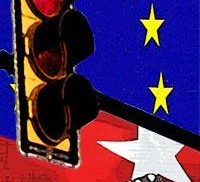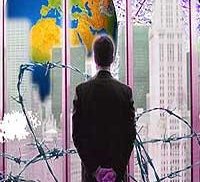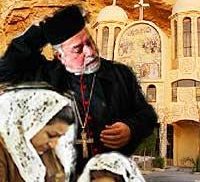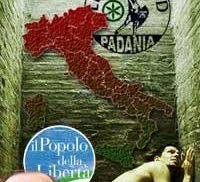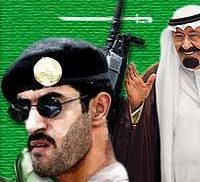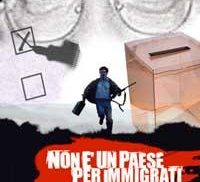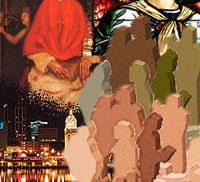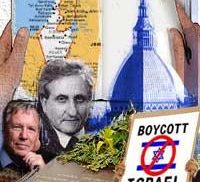This dossier stems from the debate sparked by Elizabeth Suzanne Kassab’s article—which opens this collection—on the transformation of the Arab intellectual scene after 2011. Her notion of a “new contemporary” in Arab thought prompted a series of contributions that do not aim to offer solutions, but rather to raise new questions, probe unresolved issues, and put forward critical perspectives. Bringing together Kassab’s essay and two related pieces, the dossier explores how Arab thought is redefining itself in light of the uprisings, the failures of political transitions, and the moral and intellectual rupture marked by Gaza.
Dossiers
- The Turkish Constitutional Court has rejected a law allowing women to wear the Islamic veil in universities. According to sociologist Nilüfer Göle, a guest at Resetdoc’s Istanbul Seminars, this is “a way of confiscating democracy and public debate in the name of legalism”. Now the judges themselves could decide to outlaw the moderate Islamic party, the AKP, as well as its most important leaders (among them Premier Erdogan and the President of the Republic Gül), accused of attacking the country’s laicity. Is democracy at risk in Turkey? Europe and the Arab world are watching. Some, perhaps, are hoping for chaos.
- “He and I represent two different ways of being Catholics, one in the sense of the Roman Curia, one in the sense of the Second Vatican Council. And I am not alone; there are many who share with me the persuasion that the Church is in need of reforms”. This is how the great Swiss theologian Hans Küng described to Giancarlo Bosetti – editor-in-chief of Reset – his relationship with the former Cardinal Joseph Ratzinger, now Pope Benedict XVI, and also explained why he is disappointed with his papacy. Has the Catholic Church abandoned the spirit of the Second Vatican Council?
- There is a cold wind blowing on Globalisation in the West. The Democrats in America are campaigning against NAFTA, Congress opposes new free-market agreements with Colombia and South Korea and only 28% of Americans agree that globalisation is a good thing. Europe is faced with the electoral success of regional political parties that are hostile to immigration. In Italy the new right-wing government is asking for excise duty on Chinese products and dreams that the national airline will remain in Italian hands. As the Wall Street Journal says, “the world is not as flat as it used to be”.
- They are “People of the Book”, and they share the same values as Muslims. And yet, the lives of Christians in the Middle East seem to have become more difficult in recent years. Many emigrate, their numbers dwindle, and their political influence is reduced while threats increase, from Iraq to Egypt and even Turkey. This, to the extent that a few months ago the European Parliament almost unanimously voted a resolution expressing serious condemnation. How do Christians live in the Middle East? What role do they play in societies where there is a Muslim majority?
- The Italian elections held in April have returned the centre-right government to power. Silvio Berlusconi is once again Prime Minister, leading a coalition that is even more right-wing than the previous one. The Northern League, gambling on people’s fear of foreigners, managed to address a widespread need for social and economic security, and will now play a pivotal role in the government. What are the real reasons for this party’s success? Relations between Rome and Arab capitals are destined to be overturned. In what sense will Italy’s foreign policy change?
- Although it is still impossible to build a Christian church in Saudi Arabia, King Abdullah has intensified interreligious dialogue with Pope Benedict XVI. The debate addressing women’s right to drive has recommenced, however, the “religious police”, the Mutawwa, continues to rule. Conflicting news from a mysterious kingdom safeguarding Islam’s holy places, but one that is certainly not considered a model by the Muslim world. Riyadh is still a key ally for the USA, not only for its oil but above all due to the anti-Iranian role it plays in this region, and this is one of the reasons for which, while the world fights for Tibet, for some time now silence has fallen as far as human rights in Saudi Arabia are concerned.
- Barack Obama has a multicultural and international background. His father is Kenyan, he has lived in Indonesia and his family is spread out over three continents, as far as China. On the other hand, former First Lady Hillary Clinton has more experience in foreign policy issues, although only indirectly. The world cannot vote for either of them, but it is closely watching the race between the two Democrat candidates to the White House. And it wants to know who has more chance of resolving the Israel-Palestine conflict? Who would be better at handling the crisis in Iraq and the difficult relations with Iran?
- In the Democratic Party primaries, immigrants took part en masse, but Walter Veltroni’s party has not even proposed one as a candidate for the forthcoming national elections on 13th April. On the contrary, he has excluded the only outgoing representative, Khaled Fouad Allam, from the list. The centre-right chose Souad Sbai, although she risks not being elected. Italians abroad who are not living in Italy can vote, whilst the children of immigrants, who support the Italian national football team, speak local dialects and have possibly always lived here, cannot vote. Why do Italian politics dismiss immigrants? Because they don’t vote? Because politicians think that they make them lose votes?
- The concept of secularism originated in the West, although here it has and has had various meanings. Philosopher Charles Taylor says ‘it consists, among other things, of a move from a society where belief in God is unchallenged to one in which it is understood to be one option among others’. In the Muslim world secularism creates several misunderstandings. And yet when interpreted in a certain sense, it could present itself as ‘the third way’ to the crisis of political societies in the Middle East and in opposition to the secular authoritarianism of the state and the rise of religious fundamentalism within the civil society.
- Various Communist politicians and Muslim intellectuals have called upon people to boycott the Book Fair in Turin, “guilty” of asking Israel to be its guest of honour. This has sparked off a heated debate in Italy, where the reasons of those against the boycott have come across as much more balanced and sound (one cannot compare the Israeli government with its writers, and the authors invited, such as Oz and Yehoshua, are men of peace and dialogue). Someone however (who really could not wait) has seized the occasion to expose some anti-semitism and "Islamic fascism" in someone who in reality only reacted due to political reasons, such as Tariq Ramadan.



